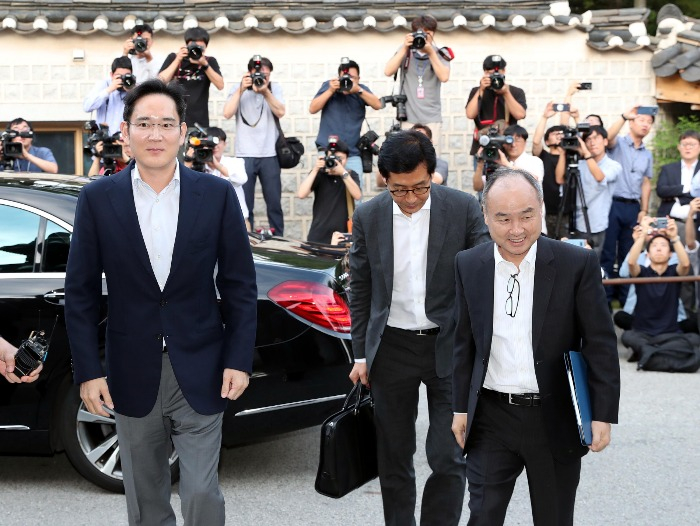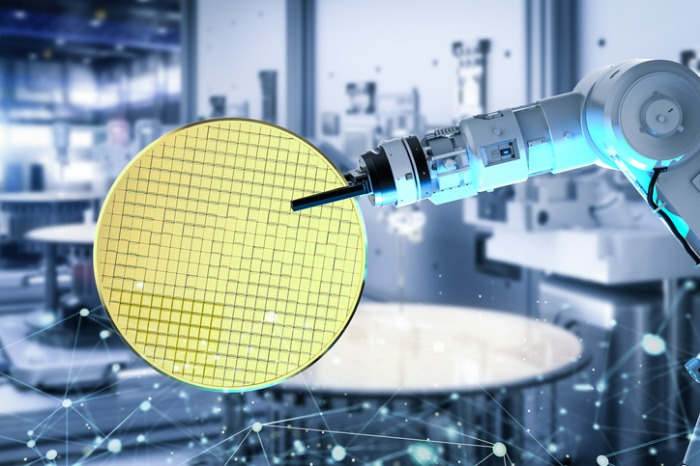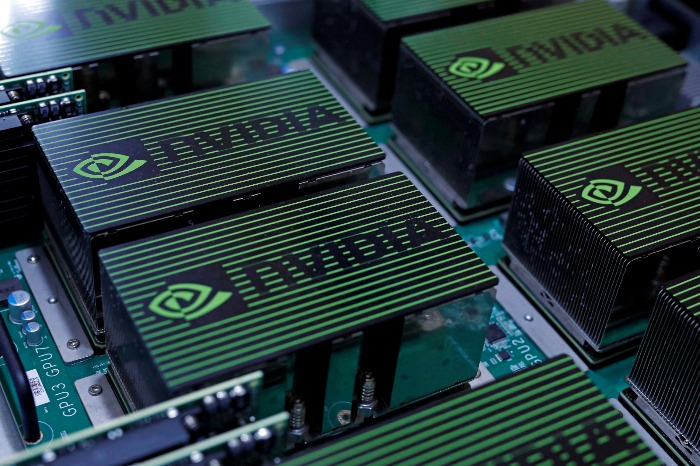Korean chipmakers
SoftBank’s Son expected to meet Samsung's Lee for Arm M&A discussion
UK chip designer Arm's technology powers nearly all smartphones. SoftBank agreed to sell it to Nvidia but the deal collapsed
By Oct 02, 2022 (Gmt+09:00)
5
Min read
Most Read
LG Chem to sell water filter business to Glenwood PE for $692 million


Kyobo Life poised to buy Japan’s SBI Group-owned savings bank


KT&G eyes overseas M&A after rejecting activist fund's offer


StockX in merger talks with Naver’s online reseller Kream


Mirae Asset to be named Korea Post’s core real estate fund operator



SoftBank Group Corp. CEO Masayoshi Son, who also goes by the Korean name Son Jeong-ui, arrived in South Korea on Saturday. When asked about the purpose of his visit, he answered, “business.”
Industry insiders forecast Son will meet with Samsung Electronics Co.’s de facto leader Jay Y. Lee to discuss a possible sale of British chip designer Arm.
Arm is based in Cambridge, England, and its primary business is in the design of ARM processors.
On Sept. 21, Samsung Electronics Vice Chairman Lee told reporters after an overseas tour that he thinks Son “may make a proposal” in this regard during his visit to Seoul in October.
On Thursday, SoftBank’s Son said that he plans to meet with the Samsung Group heir to discuss a potential “strategic alliance” between the South Korean tech giant and Arm.
The Korean-Japanese billionaire is also expected to meet with SK Group Chairman Chey Tae-won, as the conglomerate is considering the acquisition of Arm.
CEO of SK Hynix Park Jung-ho said back in March that he does not believe Arm is a firm that a single company can acquire and that several chipmakers are discussing forming a consortium to purchase it.
SEMICONDUCTOR BLUEPRINT
Founded in 1978, Arm is a semiconductor design company. Its technology powers nearly all smartphones.
Comparing a semiconductor to a building, Arm plays the role of an architect. Chipmakers like Samsung Electronics, Apple Inc., and Qualcomm Technologies Inc. receive the blueprint from Arm and build their products based on the system.
Exynos, a series of system-on-chips developed by Samsung Electronics' System LSI division and manufactured by Samsung Foundry, and Qualcomm’s Snapdragon, a suite of system-on-chips semiconductor products for mobile devices, as well as Apple’s A-series chips used in iPhones and iPads, are all based on Arm’s architecture.
The primary source of profit for Arm is the licensing fees it charges clients.
The company earns fixed upfront license fees when they deliver the intellectual property to partners and variable royalties from partners for each chip they ship that is based on the Arm architecture.
Arm reported that its total revenue surged 35% on-year to $2.7 billion last year.
In particular, its licensing revenues were up a whopping 61% to $1.13 billion and royalty revenues were up 20% to a record $1.54 billion.

NEUTRALITY CONCERNS
SoftBank acquired the chip designer for $32 million in 2016 but a proposed deal to sell Arm to Nvidia Corp. aroused industry opposition and broke down due to regulatory hurdles.
At that time, SoftBank founder and CEO Son was quoted as saying: "I don't expect people to understand the deal because it represents 50 steps ahead in the game of go."
But as the corporate value of companies in SoftBank’s portfolio such as WeWork and Uber plummeted, the company decided to put Arm up for sale.
Nvidia and SoftBank Group entered into a definitive agreement on Sept. 13, 2020, under which the former would acquire Arm from the latter.
On Feb. 7, however, the two sides announced the termination of the agreement, citing significant regulatory challenges preventing the consummation of the transaction.
Tech giants like Qualcomm, Intel Corp., and Advanced Micro Devices, Inc. (AMD) were against Nvidia’s acquisition of Arm, fearing increased pressure.
While Arm is a private company, Son is widely expected to list it on either a US or UK bourse by selling all or part of its shares.
EXCLUSIVE M&A UNLIKELY
Son’s first visit to South Korea in three years comes amid speculation that industry heavyweights could form a consortium to invest in Arm and ensure its neutrality.
All eyes are on whether Samsung Electronics will participate in Arm’s merger and acquisition, although an exclusive deal is highly unlikely for the same reason the Nvidia deal flopped.
Samsung Electronics is the world’s biggest memory chipmaker and the second largest foundry; and manufactures and distributes several system semiconductors.
“It would be great if we could acquire Arm but our competitors, as well as the US and Chinese authorities, will be heavily against the move,” a high-level Samsung employee told The Korea Economic Daily.

CONSORTIUM OR STRATEGIC ALLIANCE
The second and more likely scenario is for Samsung Electronics to team up with different companies to form a consortium to acquire Arm.
Even though the level of resistance is expected to be lower than an exclusive acquisition, the consortium would still be subject to interested countries’ regulations.
Experts in industry consortium formation say that Chinese chipmakers have to be included in the mix to get approved by Beijing. But such inclusion could pose issues for Washington.
The third scenario is Samsung’s partial acquisition of Arm.
Back in 2012, Samsung bought a 3% stake in the Netherlands-based ASML Holding NV and maintains a 1.5% stake in it.
ASML Holding’s net worth as of September 30 is $175.29 billion.
TIME ON SAMSUNG’S SIDE
The word on the street is that Arm’s corporate value hovers around 100 trillion won ($70 billion), which means if Son sells 3% of Arm, that would be more than $2 billion.
The emergence of the RISC-V architecture alliance, which also provides intellectual property, reduced the attractiveness of Arm.
All these factors considered, some industry watchers are not hopeful that anything significant would come out of the upcoming meeting between Son and Lee.
A Samsung employee said, "While SoftBank's financial situation is deteriorating, Samsung is not in a rush to acquire Arm."
Write to Jeong-Soo Hwang at hjs@hankyung.com
Jee Abbey Lee edited this article.
More to Read
-
 MarketsGaonchips rally on market talk of Samsung's investment in ARM
MarketsGaonchips rally on market talk of Samsung's investment in ARMSep 23, 2022 (Gmt+09:00)
2 Min read -
 Korean chipmakersSK Hynix to supply industry’s best-performing DRAM to Nvidia
Korean chipmakersSK Hynix to supply industry’s best-performing DRAM to NvidiaJun 09, 2022 (Gmt+09:00)
1 Min read
Comment 0
LOG IN


